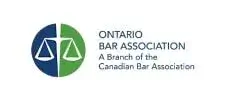Canadian Citizenship Lawyer
Sutton Law specializes in Canadian citizenship applications, offering comprehensive services for naturalization and citizenship by descent. Their experienced team ensures clients meet all residency, language, and tax requirements, providing personalized support throughout the application process.
High
Rate of Success



In Canada, citizenship is typically acquired in three main ways: by birth within the country, through descent if born abroad to Canadian parents (with the condition that they are the first generation born outside Canada), and by naturalization for permanent residents who meet certain residency requirements. To become a citizen through naturalization, permanent residents must have lived in Canada for at least three years (1,095 days) within a five-year period before applying.
Once acquired, Canadian citizenship is permanent unless it was granted through fraudulent means. Canadian citizens are afforded several rights, including the freedom to travel in and out of the country, the privilege to vote in elections, and the ability to hold a Canadian passport, among other benefits.
- Citizenship By Naturalization
In Canada, individuals who hold permanent resident status have the opportunity to apply for citizenship through a process known as naturalization after they’ve lived in Canada for a predetermined period. This pathway not only extends citizenship to the applicants but also ensures that any children they have while being naturalized Canadians, even if born abroad, are automatically Canadian citizens.
Furthermore, Canada supports the concept of dual citizenship. This means permanent residents transitioning to Canadian citizenship do not have to renounce their original nationality, assuming their home country’s laws also recognize and permit dual citizenship. This provision allows individuals to enjoy the benefits and privileges of citizenship from two countries simultaneously.
- Citizenship By Descent
Anyone born in Canada automatically acquires Canadian citizenship. Additionally, individuals born abroad to a parent who is a Canadian citizen by birth or naturalization (and that parent being the first generation born outside Canada) are also eligible for citizenship by descent.
Holding Canadian citizenship comes with a number of benefits not available to permanent residents, including the right to participate in Canadian elections and the eligibility to hold a Canadian passport.
“Sutton Law made my journey to Canadian citizenship seamless and stress-free. Their expertise and dedication ensured I met all requirements, and they guided me every step of the way. I highly recommend their services to anyone seeking citizenship.”
High Rate of Success
Proven Track Record of Client Satisfaction
7 days a Week Services
Available 7 Days a Week to Support You
Proven Legal Expertise
Your Trusted Partner in Justice

Start your journey with Sutton Law—because your future is worth it.
At Sutton Law, we believe everyone deserves access to trusted legal support. With our proven expertise, personalized strategies, and unwavering commitment to your success, we simplify complex legal challenges and make the process stress-free. Start your journey with a dedicated legal team that puts your needs first—because your future is worth it.
Let Us Help You
Let the expert help you need to immigrate to Canada
Get Free Assessment
Contact us
Citizenship by Naturalization
Canadian Citizenship Application Requirements
To be eligible for Canadian citizenship, permanent residents must adhere to specific residency and compliance requirements. Here’s a streamlined summary of the prerequisites:
- Residency Obligations: Applicants need to have been physically present in Canada for at least three out of the five years prior to their application. Notably, time spent in Canada as a temporary resident or protected person before becoming a permanent resident counts towards this requirement, albeit at a half-day rate for up to 365 days.
- Tax Compliance: It’s also mandatory for applicants to have filed Canadian income tax returns, if required under the Income Tax Act, for at least three years within the five-year period preceding their application.
- Language Proficiency: Applicants aged 18 to 54 must demonstrate sufficient proficiency in either English or French, Canada’s official languages. This can be proven by submitting acceptable language test scores, such as IELTS or CELPIP for English and TEF for French, evidencing a language ability at Canadian Language Benchmarks (CLB) level 4 or higher for speaking and listening. Alternatively, evidence of completing a post-secondary program in English or French, or proof of completing language training that meets the CLB 4 benchmark, is also acceptable.
Meeting these criteria ensures applicants have not only fulfilled their physical presence in Canada but have also integrated into Canadian society through language and economic participation.
Canadian Citizenship Test
Applying for Canadian citizenship involves a mandatory test for permanent residents aged between 18 and 54, designed to assess their understanding of Canada’s history, values, institutions, and symbols
Preparing for the Test:
Applicants are advised to study the “Discover Canada: The Rights and Responsibilities of Citizenship” booklet, which serves as the foundation for the citizenship test. This guide encompasses Canada’s history, governance, culture, and other key aspects that form the essence of Canadian citizenship.
Understanding the Test Format:
The citizenship test is written and comprises 20 multiple-choice questions, reflecting the content of the “Discover Canada” booklet. To pass, applicants must answer at least 15 questions correctly. In instances where an applicant does not pass on their first attempt, a second opportunity to take the test is offered. Failure on the second attempt leads to an oral test conducted during an interview with a citizenship officer.
Citizenship by Descent
In Canada, acquiring citizenship at birth is straightforward: if you’re born on Canadian soil, you automatically become a Canadian citizen. Additionally, children born abroad to at least one Canadian parent who themselves were born in Canada or naturalized can also claim Canadian citizenship by descent, provided they are the first generation born outside Canada.
Shift in Citizenship Rules in 2009:
Significant amendments to the citizenship by descent rules were introduced on April 17, 2009. Before this date, children born abroad to a Canadian parent automatically received Canadian citizenship, regardless of how many generations had been born outside Canada. Post-2009, this automatic citizenship was limited to just the first generation born abroad. Consequently, if you were born outside of Canada to a Canadian parent who was also born abroad, you would not be eligible for Canadian citizenship by descent if you represent the second or subsequent generation born outside Canada.
Exception to the Rule:
For children who don’t qualify for citizenship by descent due to these rules, their Canadian parent may have the option to sponsor them for permanent residency in Canada. This is typically possible if the child is under 22 years old and not married.
Options for Ineligible Children:
For children who don’t qualify for citizenship by descent due to these rules, their Canadian parent may have the option to sponsor them for permanent residency in Canada. This is typically possible if the child is under 22 years old and not married.
This change in rules underscores the importance of understanding the specific requirements and exceptions related to Canadian citizenship, especially for those with connections to Canada living abroad.
Client Testimonials
Michelle Howard
Florence Brady
What an amazing service! They have helped my family many times throughout various complicated issues we had to deal with. Highly knowledgeable and experienced professionals that followed up on every detail.
Cassandra Hyler
Mr Alex is a very experienced, competent and knowledgeable lawyer. I highly recommend him for any immigration issue. He initiated a mandamus for the delay of my application for Permanent Residency and I received my PPR within a week after starting the process. Thank you so much for everything.
Benefits of Canadian Citizenship
Canadian citizenship thus encompasses a suite of rights and privileges that enhance an individual’s participation in national life, global mobility, and personal security, reflecting Canada’s inclusive and globally oriented national identity